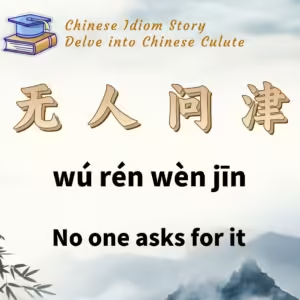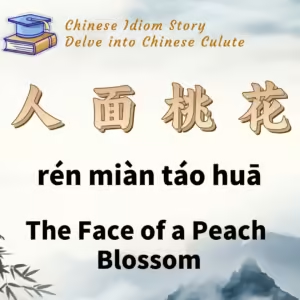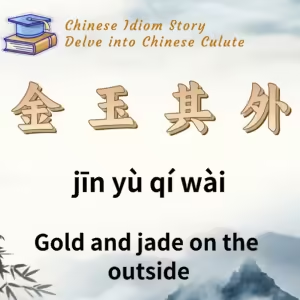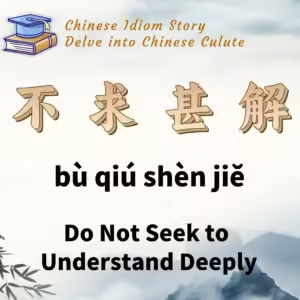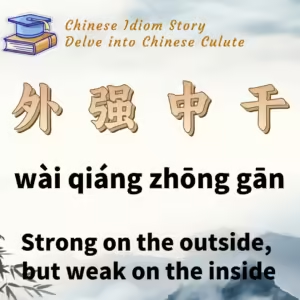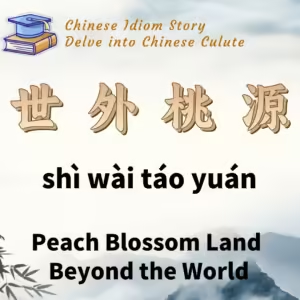
Chinese Idiom: 世外桃源 (Shi Wai Tao Yuan)
English Translation: Peach Blossom Land Beyond the World
pīn yīn: shì wài táo yuán
Idiom Meaning: This idiom describes an idyllic, utopian place that is free from the troubles and conflicts of the outside world. It refers to an ideal and peaceful realm, often seen as a retreat from reality, where life is serene and harmonious.
Historical Source: 《桃花源记》 (Peach Blossom Spring), a famous prose work by the Jin Dynasty poet Tao Yuanming
Idiom Story:
In the Taiyuan era of the Eastern Jin Dynasty, a fisherman from Wuling (now part of Hunan Province) set out to fish one day. During his journey, he came across a picturesque grove of peach blossoms. Intrigued, he followed the river, which led him to a small mountain with a cave.
The fisherman entered the cave, which initially was narrow but then widened into a magnificent, hidden paradise. This land was lush and fertile, with well-organized houses, rich fields, fish ponds, mulberry trees, and bamboo groves. The people living there, dressed in different attire, were content and busy with their daily tasks. They had never heard of the outside world, including the Qin, Han, Wei, or Jin dynasties.
The people of this secluded place welcomed the fisherman warmly, telling him that their ancestors had fled from the turmoil of the Qin Dynasty and settled there, remaining cut off from the outside world. They lived without taxes or forced labor, enjoying a peaceful existence.
After staying for a few days, the fisherman left, but when he later tried to return with others, he was unable to find the hidden paradise again.
The story of the Peach Blossom Spring thus became a metaphor for a perfect, untouched retreat from the chaos of the world. The idiom “世外桃源” (Peach Blossom Land Beyond the World) now symbolizes such a utopian place, idealized and disconnected from reality.

